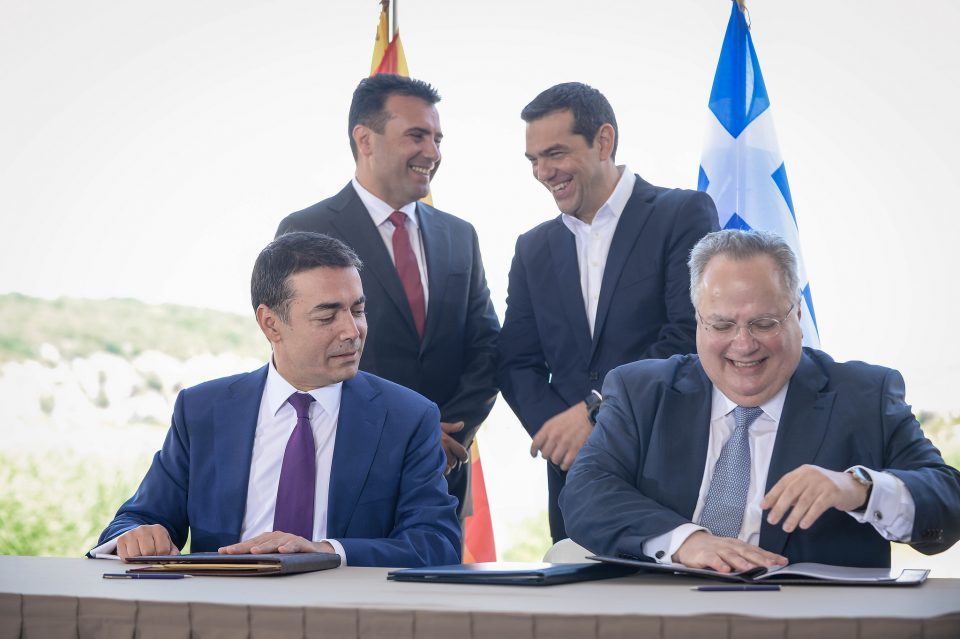The Prespa Agreement was possible because the Macedonian identity was not touched. Some of the issues raised by Sofia go into something that Sofia has no right to – the Macedonian identity, Deputy Prime Minister for European Affairs Nikola Dimitrov said in an interview with MIA.
The countries in the 21st century base their relations on principles, international law and European values. Countries recognize other countries and governments, but they don’t recognize identities or languages. It is every nation’s right to self-determination. It was the same before, but especially now, in Europe, in the 21st century. When Bulgaria recognized the independence of the then-Republic of Macedonia, it recognized our sovereign right to being who we are, Macedonians speaking Macedonian language, Dimitrov stressed.
He reminded that since the Lisbon Treaty, the EU Charter of Fundamental Rights, the European Union has had myriad documents upholding the right to self-determination, which he says is entirely our own business.
The issues, differences raised by Bulgaria lack any legal basis. We are neighbors, we are strongly interested in good relations, however, good relations cannot be built when challenged with something that is entirely our own business. I see solution to these issues only in accordance with international law, international agreements, respect…The preamble of the Friendship Treaty signed with Bulgaria, among other things, reads that the two countries will build close and friendly relations based on mutual respect. This mutual respect involves respect of our sovereign right to be who we are, Macedonians speaking Macedonian language, Dimitrov underlined.
He reiterated that the Prespa Agreement closed an issue that had been an obligation from the UN Security Council since 1993. Under the agreement, which was made possible only because Greece had accepted our right to self-determination, we protected the Macedonian identity. Otherwise, the Prespa Agreement wouldn’t have been possible.
With Bulgaria, the deputy prime minister said, we share an essential interest for friendship and settling of the differences. However, the issues Bulgaria have been raising lack legal foundation.
After the process in the UN had been completed, neither Bulgaria nor any other country in the world can tell us what language we should speak. It’s our business. The Friendship Treaty says – we obviously have differences in terms of history, we’ll form a commission of historians to discuss the differences, while we, the politicians and the government, will work on the future, we’ll cooperate. We had Bulgaria’s support to join NATO, for which we are grateful, and we’ll have their support on our path to the EU according to Article 2 of the Friendship Agreement, Dimitrov said.
He explained that one of the agreements settles the issues merit-wise, while the other creates mechanism, but the nature of the issues is different.
Those saying and thinking that by removing the blockade with Greece through the Prespa Agreement, we will have to now make compromises with Bulgaria to eliminate its blockade, are in fact making a mistake, they are comparing apples and oranges, the deputy prime minister said.
Dimitrov pointed out that if a unified view of all historical issues had been the precondition to join the EU, the EU wouldn’t have existed. There are many figures and events that are observed differently in one member country compared to another, he said.
To be in line with European principles, it means to learn to live with these differences and to build good relations and friendship in spite of the differences. In history, it’s called multiperspectivity. It would be healthy we, the Macedonians, with eyes wide open to look back in our history. However, it cannot be done to harm the present and our right to self-determination; it cannot be the result of blackmail. We and the Bulgarians, and many other Balkan nations have a saying similar to “One swallow does not make a spring,” Dimtrov said in the interview with MIA.




Comments are closed for this post.